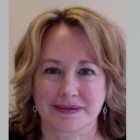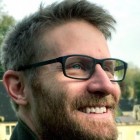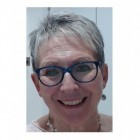PLE511
Plenary with David White and Barbara Wasson: Education Futures: Data AND Creativity
Date Friday, Dec 4 Time – Room:
From students’ digital skills to teachers’ pedagogical skills – how can we design and deliver education in the online learning jungle?Barbara Wasson will speak about "Data, Data, Everywhere..."
Technology that supports learning has been around since the 1960s. As technology evolved through the past decades, however, the type of data that has been able to be collected about learning has changed, as has what we can do with this data. In this talk I will explore these changes and end with the argument that what we really should do with the data is to support empowerment.David White will speak about "Cultivating Collective Creativity"
As AI, algorithms and automation continue to expand into areas that were once purely human domains of education and work, creativity becomes an increasingly valuable attribute. In this talk I will explore what we can learn from arts education to cultivate creativity online, not only in the ‘talented’ individual but as a powerful collective endeavour across any institution.

Barbara Wasson
Professor and Director at the Centre for the Science of Learning & Technology, UNIVERSITY OF BERGEN, Norway
Barbara Wasson is the Director of the Centre for The Science of Learning and Technology (SLATE) at the University of Bergen, where she is a full Professor in the Department of Information Science & Media Studies.
She has been involved in research on Technology Enhanced Learning since 1983 and has over 150 publications in the field. At SLATE she currenly is involved in several projects using machine learning and learning analytics and other modelling aspects of AI.
Wasson was one of the founders of Kaleidoscope, a European Network of Excellence on Technology Enhanced Learning, a European Network of Excellence in Technology Enhanced Learning and she is often used as an expert evaluator by the European Commission.
Her current research interests include collaborative learning in distributed settings, mobile learning, interaction design, computer support for collaborative learning (CSCL), mobile learning, learning games, intelligent tutoring systems, e-assessment, teacher inquiry, learning analytics, and pedagogical agents.
Links

David White
Head of Technology Enhanced Learning, Head of Digital Learning at the University of the Arts London
I’ve worked at the intersection of teaching, research and digital for over 20 years. This has taken me from hand-coding websites for the BBC Natural History unit through to my current job of helping to run the largest Creative Arts university in Europe* as Head of Digital Learning. In between I worked at the University of the West of England and a long stint at the University of Oxford co-managing an online distance learning unit.
I’m not a technologist in that I’m more interested in the implications and opportunities of digital for learning, work and society than I am in procuring the latest shiny tech. A large aspect of my role at the University of the Arts London is focused on enhancing teaching and learning by encouraging emerging aspects of digital practice – a good example of this work being the Digital Creative Attributes Framework.
Beyond UAL I’m probably best known for the Digital Visitors and Residents continuum (V&R), an approach to understanding how we relate to the digital environment. The V&R mapping activity is used globally in many courses and staff development sessions and has been central to numerous research studies.
Seeking connections between enhancing teaching and learning and open, online modes of engagement earnt me Principal Fellowship of the Higher Education Academy. Alongside this I have led a number of national studies which explore the potential of digital in higher education contexts and have supported institutions in the strategic development of teaching practice.
Links
Moderator

Michelle Selinger
Principal Consultant, Dualversity, UK
Dr Michelle Selinger has extensive experience helping governments and educational institutions around the world in both developed and emerging economies to create and evaluate strategies for technology enhanced education reform. She has an academic background in digital education in both campus-based and distance education.
She was responsible for technology across the curriculum in the Open University’s distance taught initial teacher education programme and led pioneering work on teacher collaboration. She led the Centre for New Technology Research in Education at the University of Warwick, and then took the role of lead education consultant for Cisco Systems Corporate Affairs and then Cisco Consultancy Services.
In 2013 Michelle set up an independent consultancy carrying out research and development work for companies like Intel and Pearson, and for the Queen Rania Foundation, Jordan. Latterly she has worked with the consultancy EdTech Ventures on research for Microsoft and HP Inc.